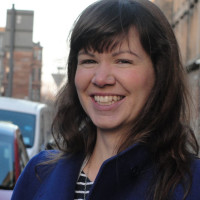All too often immigrant communities in the UK are blamed for government decisions to cut services. Government at all levels has a responsibility to adequately fund and plan for hospitals, schools and housing. We cannot simply take the financial benefits of migration without having more effective policy in place to facilitate integration. It is not acceptable that immigrant communities are blamed for poor planning and government cutbacks. This is also to the detriment of the global community and environment and is visible through the rise of the far right in Europe and the U.S.
The reality is that we live in a global age where countries depend on each other not only for trade; sharing knowledge and research, but for our shared environment and management of our natural resources. We need to work together to promote stability and tackle conflict. To make this system work well we need to understand each other and be able to live and work with people from all kinds of cultures and backgrounds.
Here, in Glasgow, many are proud of our diversity. Community groups have been set up to facilitate integration, meeting the needs of new communities and helping to support refugees and asylum seekers fleeing appalling circumstances. This is to be welcomed.
Only 7% of the population in Scotland was born outside of the UK according to the 2011 census. Govanhill is currently the most multicultural area in Scotland and has a rich history of immigration with up to 53 languages spoken at schools in the area. However, there is also a high level of poverty in this area, and combined with the highest percentage of privately let properties in Glasgow, has led to some serious issues with housing in the area.
The Joseph Rowntree Foundation say that privately let accommodation is the main source of housing for new migrants and state:
‘Badly managed lettings, used by migrants – especially in multi-occupied properties – can create neighbourhood problems and fuel local tensions unless action is taken.’
Government at all levels needs to have adequate legislation in place to protect migrant groups in housing and the labour market ensuring reinforcement of the minimum wage and worker’s rights. However, on top of adequate legislation, there also needs to be adequate staff to enforce and support legislation.
Direct investment is also needed to facilitate community engagement and integration. Last October I met with Iliya Shterev of Roma Society Scotland. The aim of his organisation is to empower the Roma community and part of what he thinks is needed is a centre where people could drop by for support or information. This is an idea worthy of consideration. Leadership on this project should come from within and across the Roma community and there should be clear aims for this which include multicultural integration, ensuring attention is paid to integrate the work of the excellent organisations already working towards these aims.
Government services also need to continually adapt to meet the needs of new migrants such as NHS and social care advocacy services. Consideration should also be given to COSLA’s suggestion of welcome packs for new migrants to an area. These could include the details for GP registration and use of the health service, welfare rights organisations, public transport, waste management systems, the democratic process and effectively engaging with elected representatives. This information may also need to be delivered verbally.
There has been much good work already done to assist with integration but to ensure that our increasing ethnically diverse population is cohesive and multiculturalism continues to benefit the many, we must support this further both legislatively and financially with migrant communities involved in decision making. This will be to the good of our society and the environment.
Cass Macgregor is an NHS physiotherapist and the Scottish Green Party candidate for Glasgow's Southside Central ward in the local authority election in 2017. Follow her on Twitter and Facebook for more updates from the campaign trail.
